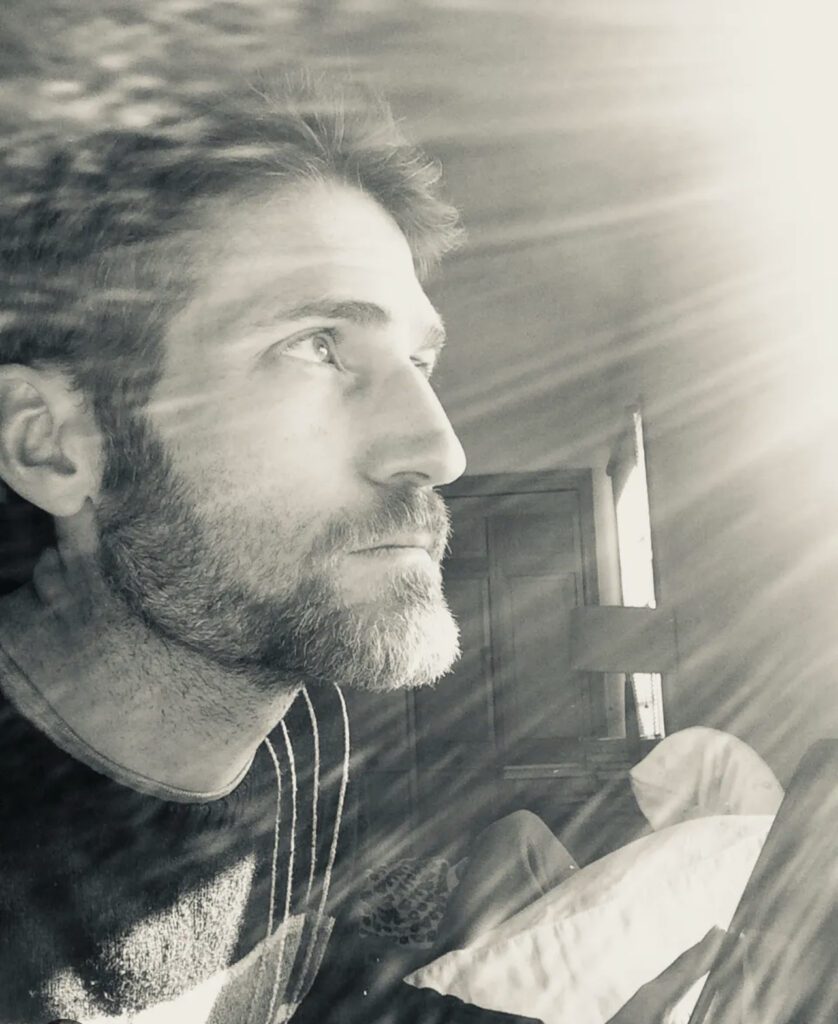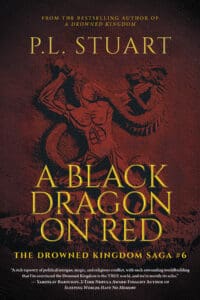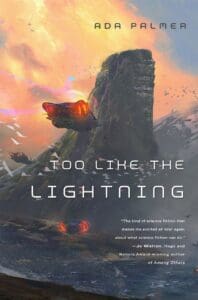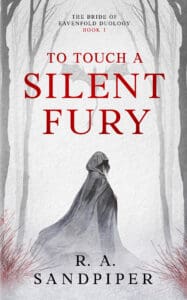
Philip Chase is an English professor specializing in medieval literature. He also has a BookTube channel, PhilipChaseTheBestofFantasy. He has recently broken into the writing community by releasing his entire fantasy series The Edan Trilogy in a single year. I would like to thank Philip for taking the time to answer some questions about himself and his new fantasy series.
FanFiAddict: First of all, congratulations on successfully releasing all three books of The Edan Trilogy in a single year. This is a monumental accomplishment. How would you describe your experience of seeing your story released into the wild?
Philip: Surreal. That is the first word that comes to mind. I spent more than eighteen years with the story before publishing, so it was definitely a big moment for me to let it out into the world. It was a bit frightening, to be honest. But the reception has been so gratifying, and I can’t begin to express how grateful I am to readers and reviewers.
FanFiAddict: At what point in your life did you decide to become an author? What was that journey like?
Philip: When I was about twelve or thirteen years old, I read The Lord of the Rings. Upon reaching the end of Return of the King, I experienced what I would now call catharsis, though I had no idea the word existed back then. But I knew that I loved the experience – that it gave me a sense of meaning, clarity, wonder, and beauty (all things we desperately need in this world) – and I decided that I wanted to try to do the same for people. I wanted to see if I could provide for people what Tolkien provided for me: catharsis. Everything in my professional life that I have done ever since – pursuing medieval studies, reading myths, learning languages, studying the craft of writing – is traceable in some way to that desire.
FanFiAddict: What authors influenced you as a reader and author?
Philip: I’ve already mentioned the big one: Tolkien. Ursula Le Guin comes next, especially her ideas about prose in fantasy (see her essay “From Elfland to Poughkeepsie”). In terms of more recent writers, George R.R. Martin is a conscious influence for me. Other authors that I have appreciated and might have influenced me as I revised my story include Tad Williams, Robert Jordan, Joe Abercrombie, Mark Lawrence, Robin Hobb, and Steven Erikson, though I read most of these after I had finished writing complete drafts of at least my first two books. And then there is my engagement with medieval studies. Anyone familiar with Beowulf will likely see that poem’s presence in my writing. My love for Old Norse sagas as well as Old English poetry is all over The Edan Trilogy.
FanFiAddict: Why did you decide to go the self publishing route?
Philip: I first tried to go the route of traditional publishing and got as far as having an excellent literary agent in my corner. However, over time, it became apparent that my story – grounded in medieval studies and reminding many readers of “classical” fantasy in some ways – was not what most folks in traditional publishing were looking for. I made my peace with that and moved on, and I must say that self-publishing has been one of the best decisions of my life. Not only has it connected me with an audience, but it has also made me part of a thriving community.
FanFiAddict: How do you approach the writing process? Do you outline everything that will happen beforehand or does it come to you as you write?
Philip: On the “architect/gardener” or “planner/pantser” spectrum, I lean pretty far to the “architect” side. I outline everything. In fact, I drew a map and wrote about a hundred pages of history, mythology, language construction, and world building before I even started a story. I don’t think all of that is necessary or even desirable for every fantasy writer, but it worked for me. I even had fun with it! That said, while I am writing, sometimes the story tells me to go in unanticipated directions. When that happens, I listen.
FanFiAddict: Religion obviously plays a major part in The Edan Trilogy. What inspired you to write a story driven by religion?
Philip: I am the son, grandson, and great-grandson of pastors. Because of how I grew up, religion is part of who I am. While I have a deep-seated affection for the faith I grew up in, I also recognize that religion has been a source of division in the history of humanity. That fascinates me. How can the same thing that has inspired so much humility, love, and compassion also be the source of so much arrogance, hatred, and destruction? Humanity is such a paradoxical species in so many ways, but perhaps nowhere more so than in the realm of religion. In the history of religion we can find our greatest aspirations and our most dismal failings. Since part of the job of literature is to explore human experience, it seemed a natural thing to me – an instinct, really – to put religion at the heart of my story.
FanFiAddict: The Edan Trilogy has some of the most remarkable characters that I’ve read. Does any single character stand out as a favorite or favorite for you to write?
Philip: Dayraven is, of course, at the heart of the story and the big questions I am trying to ask. So is Sequara. Those two are the most important to me. In terms of engagement while writing, Joruman always fascinated me. I can see part of myself in him, while other parts of him are distasteful to me, to put it mildly. He embodies some of our biggest failings, I think. I suppose I have always been suspicious of certainty in whatever form it takes.
FanFiAddict: We see a fully realized world with multiple countries and cultures in The Edan Trilogy. Where did you get your inspiration for Eormenlond?
Philip: Ellond, Torrlond, and the Mark are firmly rooted in Old English language and culture. The Thjoths are based on the Old Norse. Their cousins the Ilarchae (or the Folk of the Tribes, as they think of themselves) have a proto-Germanic vibe. Adanon and Caergilion come from a Celtic inspiration, especially Welsh, whereas the Andumaic kingdoms – Asdralad, Sundara, Sildharan, and Golgar – are a combination of South Asian, Roman, and Celtic influences. And let’s not forget the Dweorgs! They are in some ways classical fantasy Dwarves with roots in Old Norse, though I’d like to think I’ve given mine a unique spin.
FanFiAddict: What do you consider to be some important themes dealt with in your books?
Philip: Religion, spirituality, culture and identity, connection, transcendence of the self, mortality and how we respond to it. These themes all bleed into one another. Speaking of bleeding, along with those themes, there’s a significant amount of action and violence since the backdrop to the whole thing is a holy war.
FanFiAddict: Is there one thing in particular that you hope readers take away from your book?
Philip: I hope that some readers will read the last words of Return to Edan, close the book, and experience something akin to what twelve-year-old me experienced with The Lord of the Rings: beauty infused with melancholy, a mixture of wonder and sorrow, and a sense of clarity and meaning that transfers to the life around them. In another word, catharsis.
FanFiAddict: What advice would you give to aspiring authors, especially those who have chosen to self publish?
Philip: Don’t wait until you’re the best writer in the world. Don’t even wait until you’re a good writer. Start writing! The only way you get better at something is doing it. It also helps to study the craft and to read a lot – not just within your genre but also outside it, including non-fiction. The other piece of advice is that you’ll need to get used to marketing. As much as we introverted folks would love to just sit in a cabin and write, it’s important to get out there, make connections, and find your audience. Finally, savor and be grateful for every reader and every interaction. In that spirit, I’d like to thank you, Matt, for this interview, and to thank your readers. All the best!




Leave a Reply